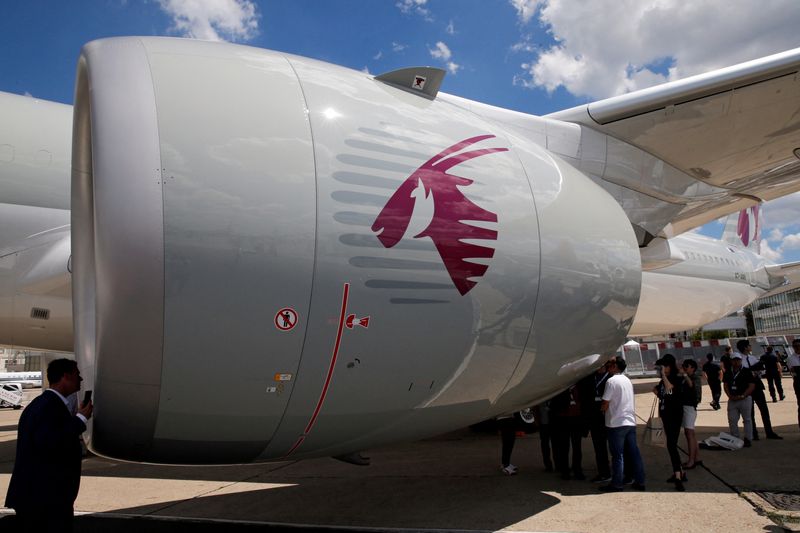DUBAI (Reuters) - Britain's Rolls-Royce (LON:RR) said on Tuesday it was taking steps to improve the durability of its Trent XWB-97 jet engines but denied a suggestion from one of the industry's most influential leaders that the Airbus A350-1000 engine was defective.
Chief Customer Officer Ewen McDonald acknowledged that the company's largest engine faced challenges in climates like Dubai, where Emirates has held off ordering the A350-1000.
"The engine works really well in what we call benign operations ... But in sandy, hot conditions it is challenged, as all modern engines are, because the temperatures are very high. We see it across the industry," he said in an interview.
Emirates president Tim Clark earlier voiced concerns about the durability of the Trent 97-XWB and Rolls-Royce maintenance prices, a day after placing a major order for 90 Boeing (NYSE:BA) 777X with rival engines from GE Aerospace.
Clark told reporters the engine of the aircraft was able to spend only a quarter of the time "on wing" between service visits, compared to expected levels, and said this amounted to a level of performance that he described as "defective".

While the engine maker generally picks up any direct excess maintenance costs as a result of increased shop visits under long-term service deals, the increased downtime is disruptive and costly for airlines.
The ability of some engines to cope with the most demanding environments without extra maintenance is one of the industry's most keenly debated issues, with U.S. supplier Pratt & Whitney in the firing line over this and other industrial snags.